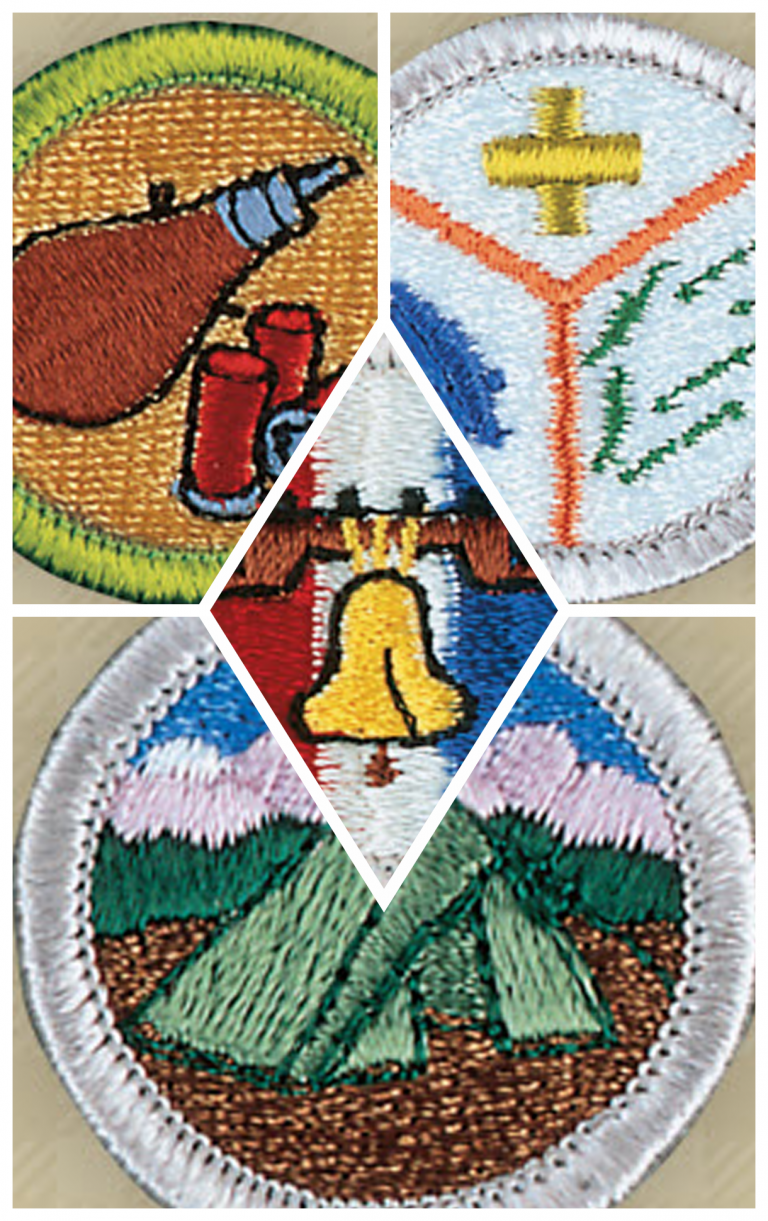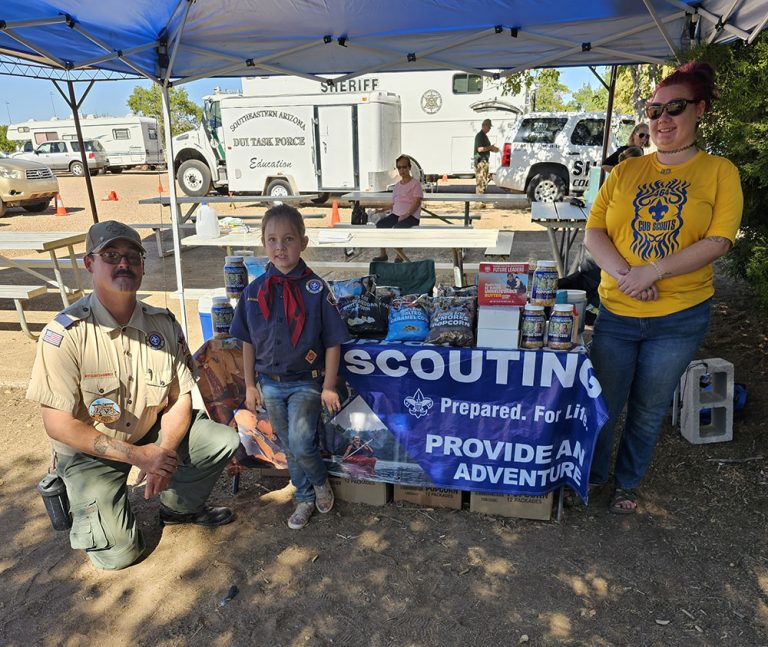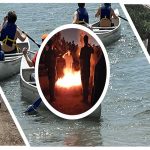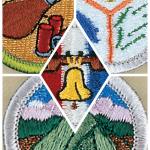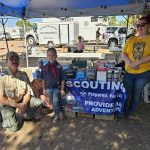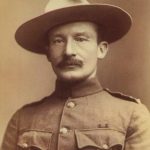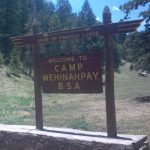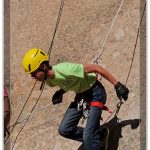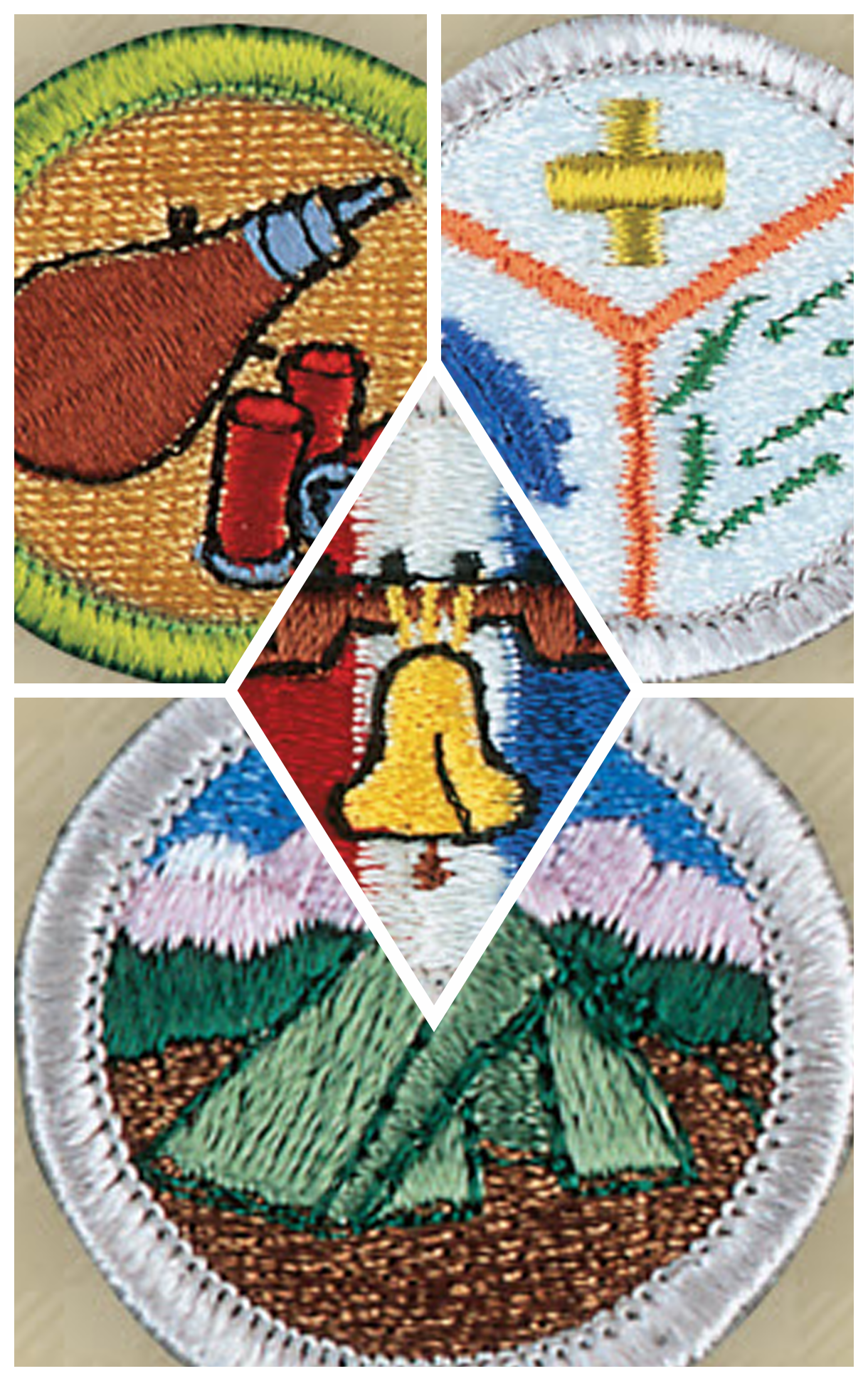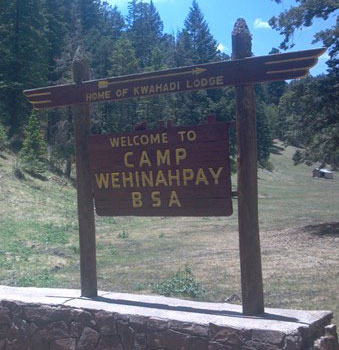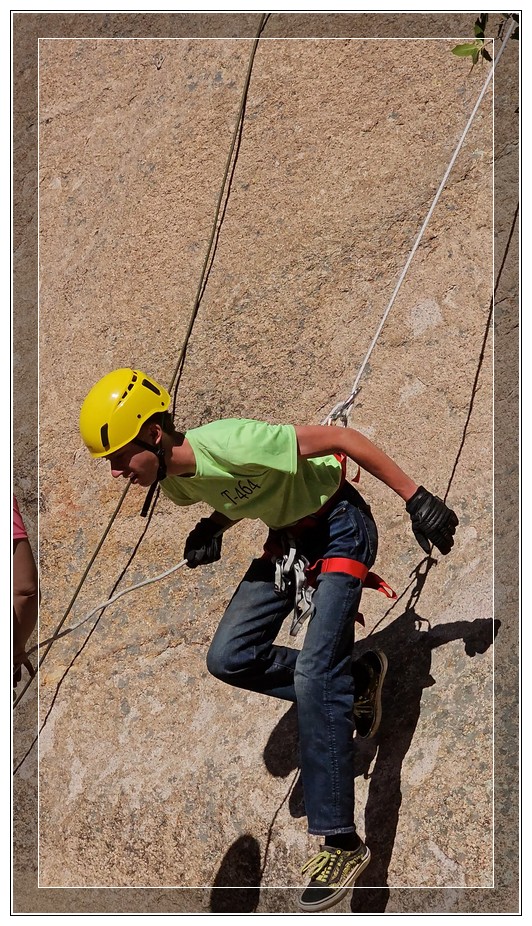Carrying On the Tradition
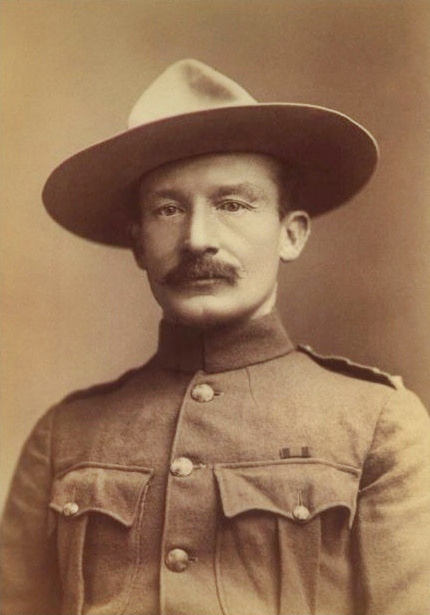
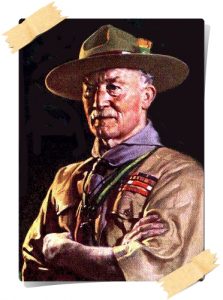 The formal birth of the worldwide Scouting movement is considered to be the first camp outing, from 1 August through 8 August in 1907, taken by Robert Baden-Powell, at the age of 50, and 20 boys he invited. There seems to be some contention as to whether the number of boys was 20 or 21. Several sources say that a fourth Rodney brother, Simon, was also there as a sixth member of the Curlews Patrol.
The formal birth of the worldwide Scouting movement is considered to be the first camp outing, from 1 August through 8 August in 1907, taken by Robert Baden-Powell, at the age of 50, and 20 boys he invited. There seems to be some contention as to whether the number of boys was 20 or 21. Several sources say that a fourth Rodney brother, Simon, was also there as a sixth member of the Curlews Patrol.
The camp was located on Brownsea Island, isolated from the mainland, near Poole Harbor on the South coast of England. He adopted a revolutionary idea in class-conscious Edwardian England at the time, by inviting these boys from different social backgrounds. Ten of the boys came from well-to-do public schools, mostly sons of friends, seven came from the Bournemouth Boys’ Brigade, and three from the Poole Boys’ Brigade. Baden-Powell’s 9-year-old nephew Donald Baden-Powell also attended as the camp orderly.
The boys were arranged into four Patrols: Wolves, Ravens, Bulls and Curlews. The boys did not have uniforms, per se, but they were given khaki scarves and had a colored knot on their shoulders designating which patrol they belonged to, green for the Bulls, blue for the Wolves, yellow for the Curlews, and red for the Ravens. They even made patrol flags, carried by the patrol leader on a wooden staff, depicting their respective patrol animals. Baden-Powell assigned the eldest boy in each patrol as the leader. Each patrol leader was given full responsibility for the behavior of his patrol at all times, in camp and in the field. Baden-Powell made sure that each patrol camped in a somewhat secluded location around a central area, so that each patrol could function without distraction from the other patrols. The Scouts were put “on their honor” to carry out orders. The whole atmosphere was based on responsibility and competitive rivalry.
“My ideal camp is where everyone is cheery and busy, where the patrols are kept intact under all circumstances, and where every patrol leader and Scout takes a genuine pride in his camp and his gadgets.” — Lord Baden-Powell
The boys slept in Army issue Bell” tents and the days started with a blast from Baden-Powell’s kudu horn at 6:00 AM. Each day began with cocoa, exercises, flag break and prayers, followed by breakfast at 8:00 am. Each of the eight days of the campout was theme based. Day 1 was preliminary, day 2 was campaigning, day 3 was observation, day 4 for woodcraft, day 5 was chivalry, day 6 was saving a life, day 7 was patriotism, and day 8 was the conclusion. These themes were based on the six principles of Scouting: campaigning (living in the outdoors), observation, woodcraft, chivalry, saving life and patriotism.
The patrol leaders were wholly responsible for the organization and direction of activities from breakfast to campfire, with nearly no adult help. Each patrol would demonstrate for their parents and any guests, at the end. This encompassed the core of what Baden-Powell called the “Scouting Method.” He wanted that the boys not merely learned woodcraft and camping, but self-directed, independent action toward a common goal. It turned out to be more successful than Baden-Powell dreamed.
The day ended with games, supper, campfire yarns and prayers at 5:00 PM.
August 1st began the campout as a “preliminary day” used for the formation of patrols, distribution of duties, special instruction for Patrol Leaders, and for the boys to settle into
camp. Day two was dedicated to “Campaigning” which included camping skills, building huts, knots, fire lighting, cooking, health and sanitation, and endurance exercises. Day three was “Observation” encompassing topics like tracking, memorizing details, deducing meaning from tracks and signs, and training the eyesight. Day four was “Woodcraft” items such as, the study of animals and birds, plants, stars, and how to stalk animals.
Day five was devoted to “Chivalry” consisting of Honor, code of the knights (remember he was in England), unselfishness, courage, charity, thrift, loyalty, chivalry to women, doing a “Good Turn” daily. Day six was “Saving a life” learning how to save someone from fire, drowning, sewer gas, runaway horses, panic, street accidents etc., and First Aid. Day seven was about “Patriotism” covering history and deeds that won the Empire, our Navy and Army, flags, duties as citizens, and marksmanship.
The eight day was basically used for a summary of the course of events and as a sports’ day. Once the campout ended the participants left by ferry on August 9th.
During the campout Baden-Powell presented the boys with the first scout emblem ever given out, a brass Fleur-de-Lis badge. During the campout the scouts were given tests on tying knots, tracking, and knowledge of the national flag (of England) to see how much they had accomplished. Upon passing the tests, the scouts were given their second brass badge of a scroll with the words “Be Prepared” inscribed on it, to be worn under the brass Fleur-de-Lis they had received earlier.
Be Prepared,
Uncle Ralph

Sources: https://en.wikipedia.org/wiki/Brownsea_Island_Scout_camp
https://en.scoutwiki.org/Brownsea_Island_Scout_camp
http://history.scoutingradio.net/

